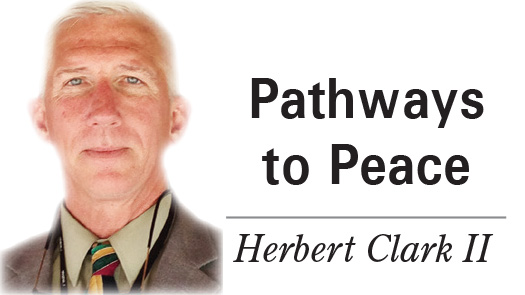Editor’s note: This is a new monthly column to help people and families struggling with addiction.
 |
While driving in Murphy, I watched the truck in front of me take a sharp left turn. The driver threw the passenger out of the vehicle while moving 35 mph.
I immediately rendered aid, she was bleeding from her legs, arms and her face. I headed toward the hospital. She immediately yelled and told me to let her out of the vehicle. I told her I would take her to the Cherokee County Sheriff’s Office.
She stated no cops. She demanded I stop, and she got out.
Sheriff’s deputy came to take a statement and look for this lady. Meanwhile, she flagged another vehicle down. I asked them to wait for the sheriff. They stated if she did not want to make a report or go to the hospital she didn’t have to. The driver stated it was not their responsibility to inform anyone.
As a community, we need to recognize addictive behaviors. Normal people don’t get pushed out of moving vehicles. Normal people don’t refuse medical treatment. Normal people don’t run from officers rendering help.
The responding deputy knew this female by the description given as a long-time drug user. The older couple that picked her up and drove her away did not realize they were enabling this disease to continue in our community.
It is our responsibility to help our community. Biblically, community is seen as an extension of family.
More than 20 million people in the U.S. have an addiction. Yet only 10 percent of these people receive any addiction treatment. The United States population on Jan. 20, 2024, was 335,960,862. Fifty percent of people ages 12 and older have used illicit drugs at least once. Drug overdose deaths in the United States since 2000 are at 700,000.
The federal budget for drug control in 2020 was $35 billion. In the first month of 2024, 10.87 percent of our state’s population used illicit drugs.
These estimates show addiction cannot be overlooked. It is a corrosive thread within our community. As noted, addiction robs us, of money and time. It also destroys families and communities.
Addiction puts our first responders’ lives in jeopardy and our families’ lives in jeopardy.
Our community unknowingly enables this disease to grow, costing billions nationwide, to grow stronger in our community – harsh words but true. There is a familiar saying that “every addict impact six other people in their addiction.” However, if this saying is true, it would also be true that every informed community member would affect six other people in their addiction.
This would mean that community education is possible through connection to others in the community, including all of the services provided.
This article and those to come are a means to understanding, helping, and protecting both family and community.
The writer is a resident of Murphy. Send questions or comments to him at hypno321@hotmail.com.
